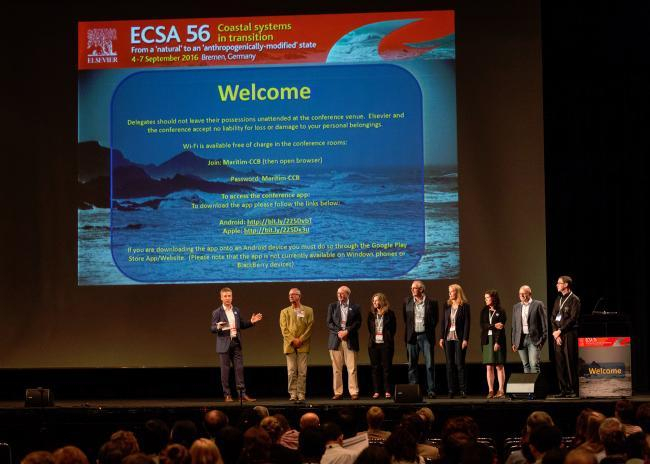12.10.18 | More than 500 scientists from all over the world gathered in Bremen for the ECSA 56 Conference "Coastal systems in transition: From a 'natural' to an 'anthropogenically-modified state" chaired by ZMT scientist Dr. Tim Jennerjahn.
Due to the high quality of conference contributions the journals Estuarine, Coastal and Shelf Science (ECSS) and Ocean & Coastal Management (OCMA) have now published special issues dedicated to the ECSA Conference Theme. Topics range from drivers and dynamics of coastal systems and impacts on estuarine biodiversity, community structure and functioning to management options for protecting estuarine diversity, functions and services.
ZMT scientists have taken a leading role in the production of these special issues and serve as guest editors. In the case of ECSS it is Inga Nordhaus in collaboration with Christian Winter from the Bremen Center for Marine Environmental Science (MARUM, University of Bremen), Raquel Vaquer-Sunyer (University of the Balearic Islands, Spain) and Daniel Roelke (Texas A&M University, USA).
https://www.sciencedirect.com/journal/estuarine-coastal-and-shelf-science/vol/211/suppl/C
Special Issue of Ocean and Coastal Management (OCMA) on Social Sciences
ZMT social scientists Achim Schlüter, Marie Fujitani and Stefan Partelow guest-edited the special issue of Ocean and Coastal Management (OCMA), which showcases diverse social science approaches necessary to understand how coastal systems are transitioning, and how to guide those transitions towards sustainability.
The editorial opens the issue by recognizing that studying coupled human-natural systems on the land-water interface is a complex endeavour that necessitates introspection into our own roles, reactions, and relationships.
Thus, social science approaches, questions, and methods must be as broad, nuanced, focused, transdisciplinary, disciplinary, interdisciplinary – in a word, diverse – as our own perceptions and preferences.
https://www.sciencedirect.com/journal/ocean-and-coastal-management/vol/162/suppl/C





